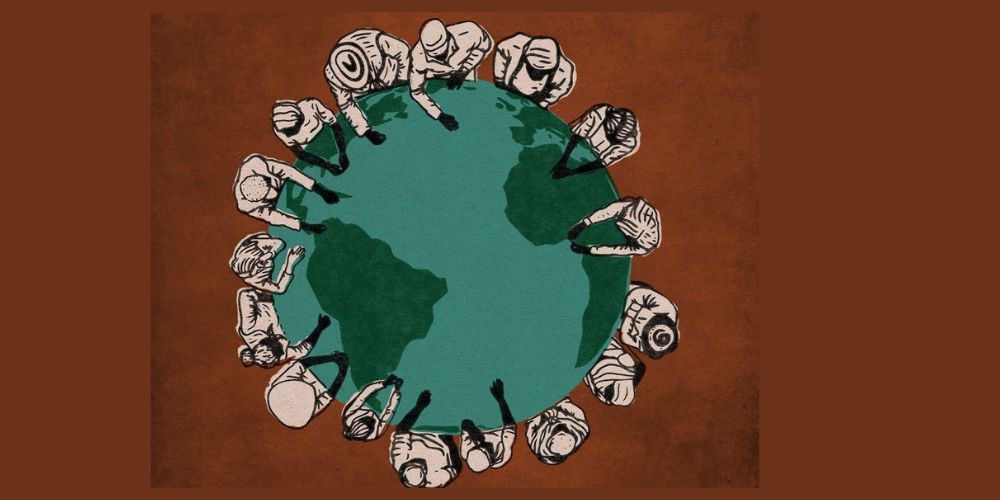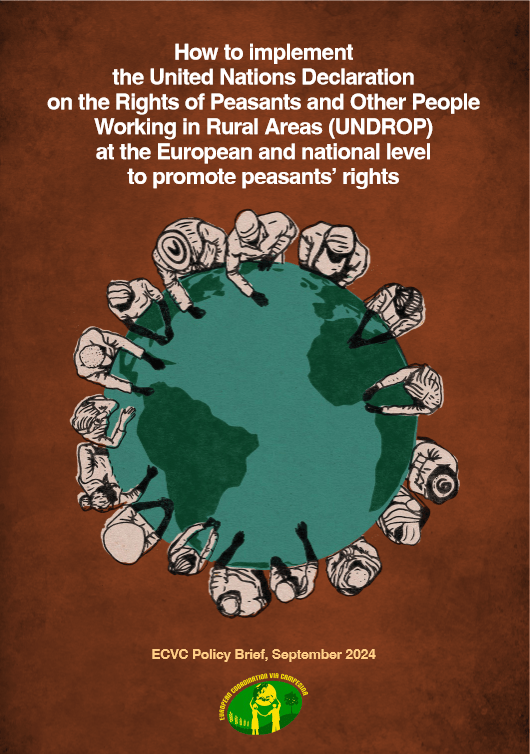ECVC’s Policy Brief: Recommendations for the implementation of UNDROP in Europe

Small-scale farmers, artisanal food producers, pastoralists, fisher peoples, food and agricultural workers, landless workers, Indigenous Peoples and other people working in rural areas play a key role in our societies. Not only do they provide us with good quality food, but also help to protect the landscape and biodiversity of our territories, preserve the cultural identity of rural areas, and promote the local economy.
At the global level, there are an estimated 510 million small-scale farms (smaller than 2 ha), out of a total of 608 million, while in the European Union (EU), small-scale farms represent the 70% of all farms. About 60 million people work in small-scale fishery and aquaculture and between 100 and 200 million pastoralists take care of around 25% of the global earth terrestrial surface.
However, as highlighted by the Human Rights Council Advisory Committee, peasants and other people working in rural areas all around the world suffer from systemic and structural discrimination and severe human rights violations. Moreover, according to a study of the United Nations (UN) from 2023 on the link between extreme poverty and global food insecurity, 80% of the world’s extreme poor live in rural areas.
In Europe, small-scale farmers are disappearing mainly due to the lack of generational renewal, market pressures, low incomes, unfair prices, an unfair distribution of the Common Agricultural Policy (CAP) subsidies, and climate change.
Against this background, the adoption of the United Nations Declaration on the Rights of Peasants and Other People Working in Rural Areas (UNDROP) by the UN Human Rights Council (UNHRC) and the UN General Assembly (UNGA) in 2018 represented a pivotal step to advance the protection and promotion of the rights of peasants and other people working in rural areas globally.
Another fundamental step was achieved in October 2023 with the creation of a UN Special Procedure within the Office of the High Commissioner for Human Rights (OHCHR), in the form of a Working Group of independent experts with a mandate to push for the implementation of UNDROP. The UN Working Group started working in May 2024 and will hold its first online session in July 2024. This policy brief is thus addressed at policy makers at the European and national level and suggests different modalities in which the obligations outlined in the UNDROP can be concretely implemented.

